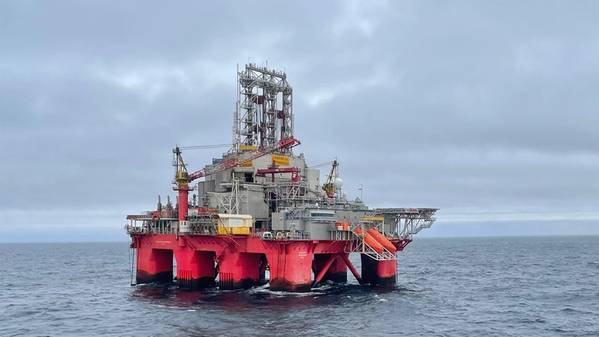
Norwegian oil and gas company Equinor Energy has drilled a dry well in the North Sea, offshore Norway, the Norwegian Petroleum Directorate has informed.
The wildcat well 34/6-6 S - prospect name Angulata Brent - was drilled about 10 kilometres north of the Visund field, and about 190 kilometres northwest of Bergen, using the Transocean Spitsbergen semi-submersible drilling rig.
The objective of the well was to prove petroleum in reservoir rocks in the Brent Group from the Middle Jurassic.
"Well 34/6-6 S encountered the Tarbert, Etive, and Rannoch Formation totaling 140 meters, of which about 90 meters were sandstone layers with poor to good reservoir quality. In addition, 14 metres of sandstone layers with poor to moderate reservoir quality were proven in the Cook Formation with a total thickness of approximately 75 meters. The well is dry. Data acquisition has been carried out," the NPD said.
This is the seventh exploration well in production licence 554, which was awarded in APA 2009.
The well 34/6-6 S was drilled to measured and vertical depths of 3965 metres and 3713 meters below sea level and was terminated in the Burton Formation from the Early Jurassic.
The water depth at the site is 374 meters. The well has been permanently plugged and abandoned.
The Transocean Spitsbergen offshore drilling rig will now drill a development well on the Vigdis field in production licence 089 in the North Sea, where Equinor is the operator.
Earlier this month, Equinor made a "commercially interesting" oil and gas discovery near its Troll field in the North Sea, offshore Norway. Read more here.
Equinor plans to drill between 20-30 exploration wells a year. Around 80 percent of the exploration wells will be drilled in known areas close to infrastructure, but new selected areas and ideas will be tested.